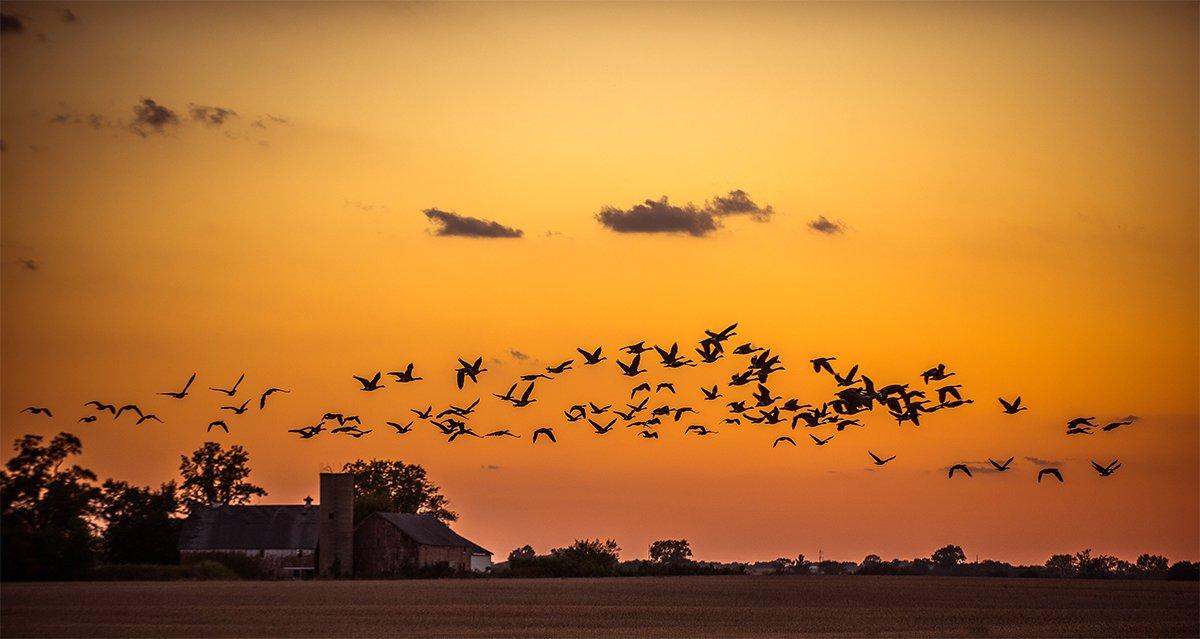It's not too early to initiate your goose hunting plans
OK, any thoughts on serious scouting for early season honkers might be premature. Still, hardcore goose nuts can take some early steps toward finding potential hotspots for late-summer and early fall Canada goose hotspots long before it's time to place decoys.
Narrow the Food Search
In many areas, early season honkers hammer small grains, such as wheat, rye, oats, barley and others. They also feed in hay (alfalfa) or corn fields that have been cut early for silage. You can help yourself by identifying potential hot fields near traditional water roosts.
A half-day drive typically suffices. Start near a likely roost, and look at fields within about a five- to 10-mile radius. Note any hay, corn or small-grain fields that might attract geese after they're cut, and then plan to revisit those spots before the season.
Also, study the layout of those fields, and plot how you might hunt them. Small-grain and freshly cut hay fields can be challenging because they offer almost no cover. Seek fence lines, rock piles, weed patches or other areas that might provide some concealment. In addition, consider how geese might approach those fields during various wind conditions.
Geese won't use every likely field, of course, but they'll probably use some. Marking dots on a map or dropping a pin on satellite photos will put you ahead of the game when the serious scouting begins.
Looking for Loaf
Many hunters overlook loafing waters — ponds, small lakes, wide creeks and others — when seeking early season geese. Peruse satellite photos during summer to find potential loafing spots near roosts and likely grain fields. Many of these waters won't attract geese, of course, but some probably will.
Also, chat with landowners to discover if they've had problems with honkers. Ask whether birds often congregate at their stock tanks or field sloughs, and even ask permission to hunt there later. You'll get turned down sometimes, but you might be surprised how many geese-weary farmers or ranchers wouldn't mind if you shot some Canadas and discouraged others from using their land.
Eliminate Bad Spots
Often, early season goose hunting revolves around urban or suburban birds. That's part of the reason we're afforded those special seasons. People and municipalities don't want hordes of geese mowing down park grass and covering boat docks with poop. However, that creates a Catch-22. Many cities, towns and community associations take matters into their own hands and discourage geese from nesting and congregating at parks, lakeshores, golf courses and other areas, whether by oiling eggs, harassing geese with dogs or other methods.
Identify those areas during summer, and look for spots where displaced or harassed geese might seek more inviting digs. Talk with park managers or locals in the know to discover areas where goose numbers might be down. Don't eliminate these properties from consideration, as many harassment or discouragement efforts fail. Just make a mental note to search for better spots come fall.
And Get Ready
With early intelligence in hand, form a solid scouting plan, and put it to use before opening day. Be ready to adapt, though. Early season honkers are notorious for changing locations and switching fields frequently. Finding more smart options now will let you adapt and improvise when the game gets real.
Click here for more Realtree waterfowl hunting content. And check us out on Facebook.








